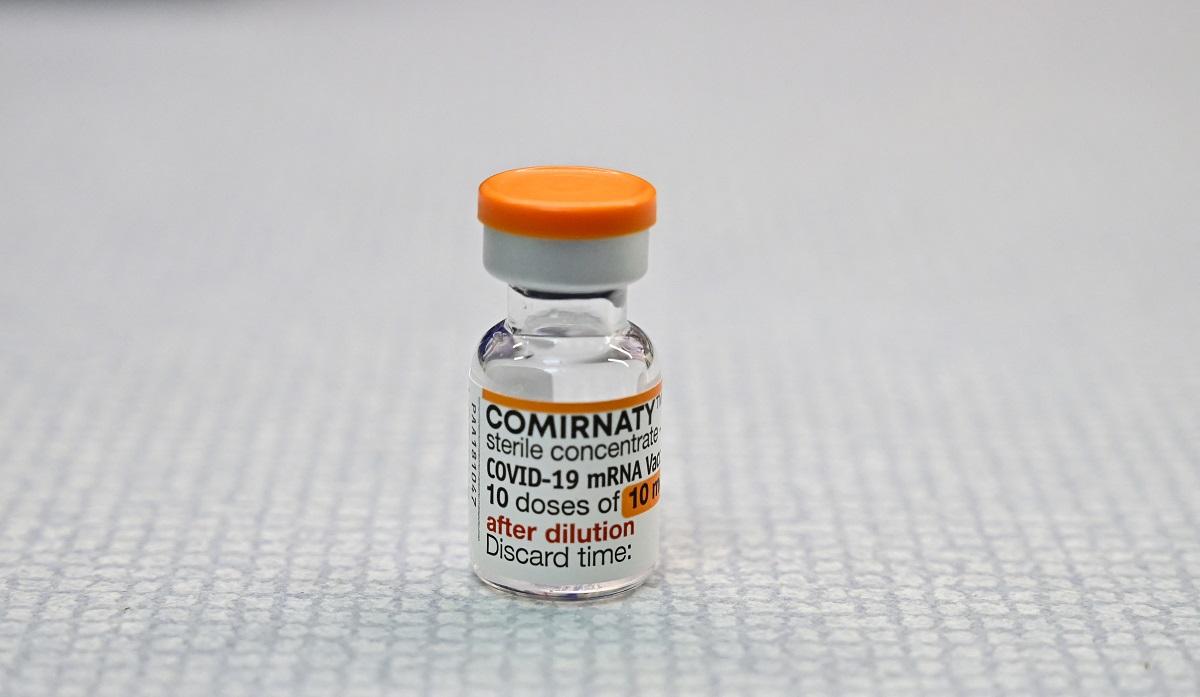Several European nations start vaccinating kids ages 5–11

MADRID — Several European nations started vaccinating children aged five to 11 against COVID-19 on Wednesday in an effort to contain a raging pandemic and keep schools open, as Germany launched raids over death threats against a pro-vaccine public official.
The push to immunize children has gained fresh urgency from concerns over the rapid spread of the heavily mutated Omicron variant of the virus, which was first identified in southern Africa late last month.
EU chief Ursula von der Leyen warned Wednesday that Omicron could become dominant in Europe by mid-January.
Croatia, Germany, Spain, Greece and Hungary were among those opening up their inoculation drives to younger kids, with other nations still weighing their approach.
Spain, which has one of Europe's highest COVID-19 vaccination rates, launched its immunization campaign for five to 11-year-olds.
The country has around 3.3 million children within that age group.
Health Minister Carolina Darias called the start of child vaccination an "important milestone" in the fight against the pandemic.
A survey published by Appinio found that 74 percent of Spanish parents of five to 11-year-olds wanted to get their kids jabbed.
Doctors elsewhere in Europe also reported strong initial demand from parents.
"As soon as we offered the vaccine appointments, they were pretty much all snapped up," said Jakob Maske, a Berlin-based doctor and spokesman for Germany's association of pediatricians.
But he downplayed expectations of the kids' shots heralding a turning point in the fight against COVID-19, at a time when Germany is battling a fierce fourth wave.
"Five- to 11-year-olds only make up around three percent of the German population," he told AFP, describing the immunization impact as "a small cog" in the effort.
Germany's STIKO vaccine commission has officially only recommended the jab for children with pre-existing conditions, but even healthy children will be inoculated if the parents request it.
Some German cities plan to administer kids' jabs in museums and zoos, while others are considering mobile vaccination teams outside schools.
Police raids
The head of Germany's teachers' association, Heinz-Peter Meidinger, said a high take-up "would significantly increase the chance of keeping schools open as long as possible."
But like other countries, Germany also grapples with anti-vaccine militancy.
Police and special forces in the eastern state of Saxony launched raids on Wednesday after an anti-vaccine group targeted the region's state premier, who has vocally supported curbs for the unvaccinated.
While serious illness and death from COVID-19 among children is rare, infected children can pass the virus to other people at higher risk of serious illness, such as the elderly.
The EU's medicines watchdog last month approved the Pfizer-BioNTech shot for five- to 11-year-olds, an age group experiencing high coronavirus infection rates across the continent.
The vaccine is administered in a lower dosage than the Pfizer jab for over-12s, and comes in a pediatric vial with an orange cap to distinguish it from the purple-capped vials for older ages.
Denmark, which has seen a surge in cases attributed to the new Omicron variant, and some Austrian regions already began offering jabs to younger kids in November.
The United States was the first large country to take the plunge and has so far vaccinated more than five million children in the 5–11 age bracket.
More countries following
The drive to vaccinate children comes as several European nations tighten virus restrictions, with Poland imposing limits on the number of people allowed in restaurants, hotels and theatres.
Italy will from Thursday tighten restrictions for arrivals from the rest of the EU, requiring coronavirus tests of everyone.
A number of European countries will launch similar vaccination drives in the coming days, including Italy, Portugal, Poland, the Baltic states and the Czech Republic, while others are still finalizing their plans.
In France, vaccination has only been approved for five- to 11-year-olds at risk of developing serious illness, but the government has said it is considering extending it to all children on a voluntary basis.
In Switzerland, the country's medical agency has greenlighted the vaccination of kids, but the campaign itself will probably only start in early January.
Belgium is awaiting the recommendation of its national health body, with a rollout likely around the new year.
British regulators are still assessing whether to approve jabs for the 5–11 age group, with a decision likely before Christmas. — AFP




